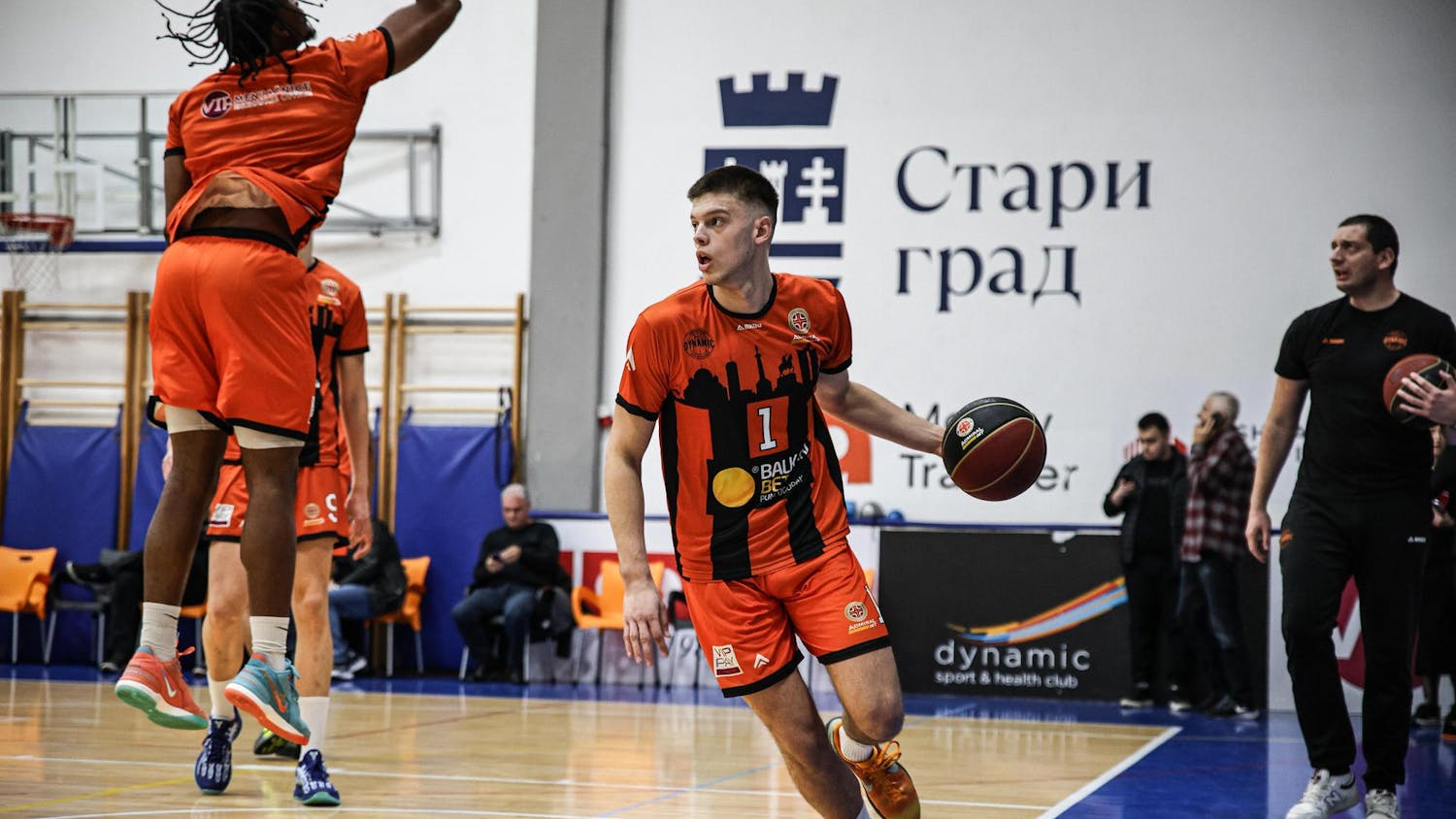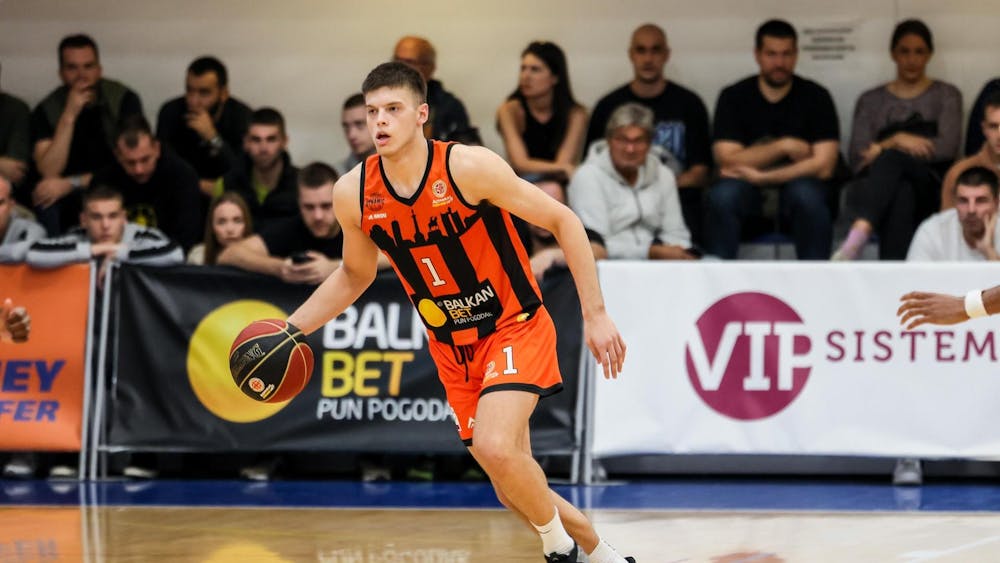When IU alumnus Mark Johnson embarked on his freshman year of college in the fall of 1988, he never imagined that in approximately 16 years, he would be celebrating a National League Championship in the St. Louis Cardinals' clubhouse. In fact, Johnson was not even certain of which major course of study he would pursue, let alone what he would be doing in the year 2004. All he knew was that he liked computers, he was good at math and he loved sports.\nAnd so Johnson went on to earn two degrees at IU, an honors B.S. in Computer Science and an M.A. in Mathematics. He subsequently enrolled at Princeton University, where he obtained two additional degrees, another M.A. and a Ph.D. in Applied and Computational Mathematics.\n"I just didn't feel I was quite done learning yet," Johnson said. "I initially thought I might want to be a professor. I figured I would worry about my career after I was done with school." \nJohnson graduated from Princeton in 1998 and worked in numerous positions in direct alignment with his educational background. Namely, he was employed by the University of Minnesota, Stanford University and Yahoo!, Inc. prior to delving into the sporting world. \nBut Johnson was no stranger to the competitive sporting environment. For all four years as an undergraduate student at IU, Johnson worked alongside current New Jersey Nets head coach Lawrence Frank as a student manager for the men's basketball team under coach Bob Knight. \n"My experiences there were invaluable in understanding how sports works," Johnson said. "Instead of studying sports in a textbook, I was able to study 'hard science' in the classroom while experiencing how sporting organizations work first-hand." \nUpon deciding to take the plunge into the professional sporting world in 2003, Johnson, his brother Matthew and their friend Robert Beck, both IU alumni, founded SportMetrika, Inc., a statistical sports consulting firm. They were subsequently hired by the Office of the Commissioner of Major League Baseball to weigh the effects of potential rule changes with statistical data. Upon completing the analysis, Johnson realized that this truly was his calling. \n"When that first set of jobs were finished, I knew I wanted to continue working in sports, so I started 'shopping around' some analytical concepts to decision makers across the world of sports," Johnson said. \nDuring this phase, Johnson communicated ideas with representatives of the National Football League, the Big 12 and Big Ten Conferences, numerous universities and even IU alumnus Mark Cuban, owner of the National Basketball Association's Dallas Mavericks. Upon contacting the St. Louis Cardinals, Johnson drew some serious interest. \n"They were more interested in hiring me full time than in hiring us as consultants, so I decided to pack my bags and move back to the Midwest," Johnson said. \nIn St. Louis, Johnson worked closely with general manager Walt Jocketty; assistant general manager and director of baseball operations John Mozeliak; and manager Tony La Russa. Knight and La Russa are good friends. \n"Having worked for Coach Knight certainly broke the ice the first time I met Tony La Russa," Johnson said. \nJohnson's duties with the Cardinals were multifaceted as he was involved in both the amateur draft and minor league player evaluation. According to Mozeliak, his primary duties involved creating, applying and explaining the results of spreadsheet analyses to other members of the Cardinals' baseball operations department. \n"The analyses Mark would run for us were designed to make our amateur draft more efficient," Mozeliak said. "He would create a matrix of different intangibles like results from psychological testing and the results would dictate our pre-draft and post-draft rankings that predict a player's potential performance as a pro-player."\nThe complexity of the spreadsheets Johnson would devise would make their explanation a seemingly arduous task. However, according to Mozeliak, Johnson's teaching methods, which included tutorial sessions for staff members, were extremely effective. Johnson attributes Mozeliak's complement to the teaching aspect of his graduate education. He explains his methods in citing that he would initially ensure that he himself held a thorough understanding of the material, so much to a point that it was intuition. Then, by using common terms relating to baseball, he was able to assist in the comprehension of his colleagues. \nIn November of 2004, Johnson resigned from his position with the Cardinals to become a senior software engineer at Danger, Inc. in Palo Alto, Calif. Johnson, however, still spends evenings and weekends working on SportMetrika projects. \nAll things considered, Johnson certainly picked a good season to work for the Cardinals. Johnson states that simply being involved in the operations of the club and seeing how things are done were his favorite aspect of the job. Predictably, he also thoroughly enjoyed the Cardinals' run at the 2004 National League pennant although he admits, he had it nice.\n"I was definitely spoiled in having my first season be such an incredible one," he said. "I don't yet know what it is like to have a bad season." \n-- Contact Staff Writer Scott \nFreedman at safreedm@indiana.edu.
Alumnus uses advanced degrees to earn spot at 2004 World Series
Former basketball manager analyzed statistics for St. Louis
Get stories like this in your inbox
Subscribe





